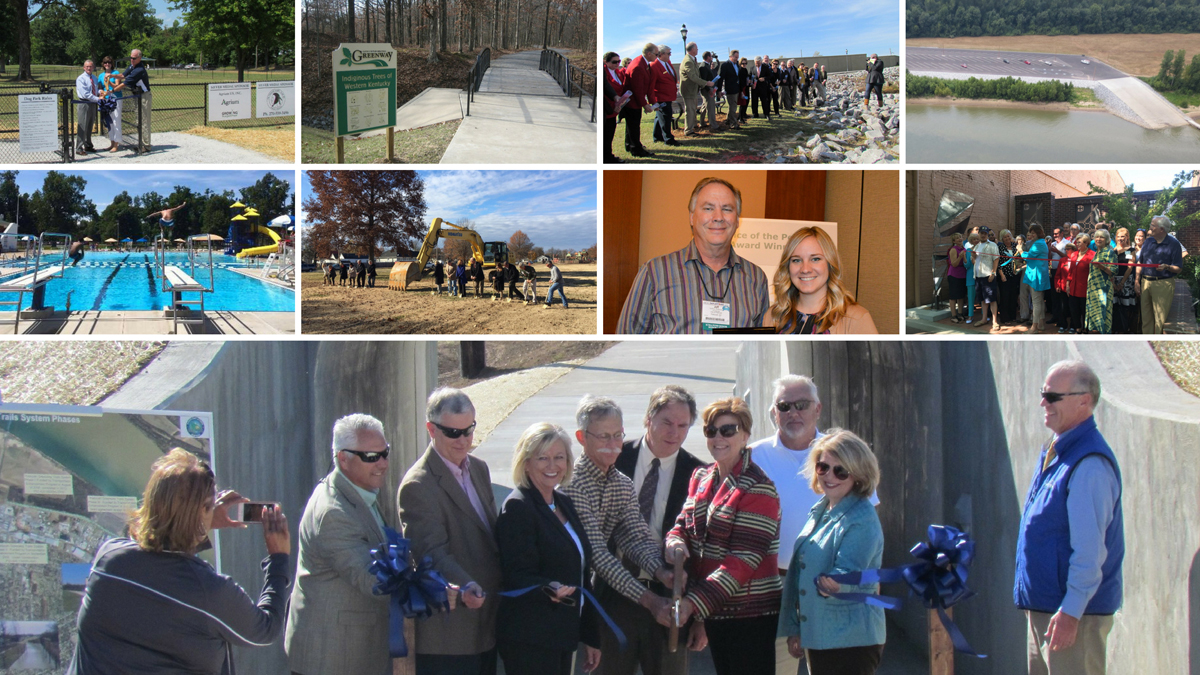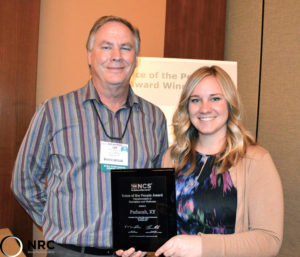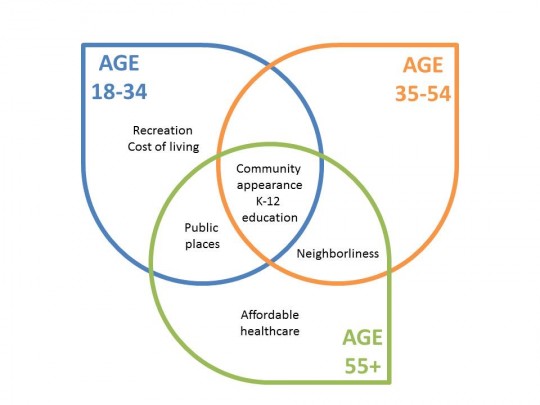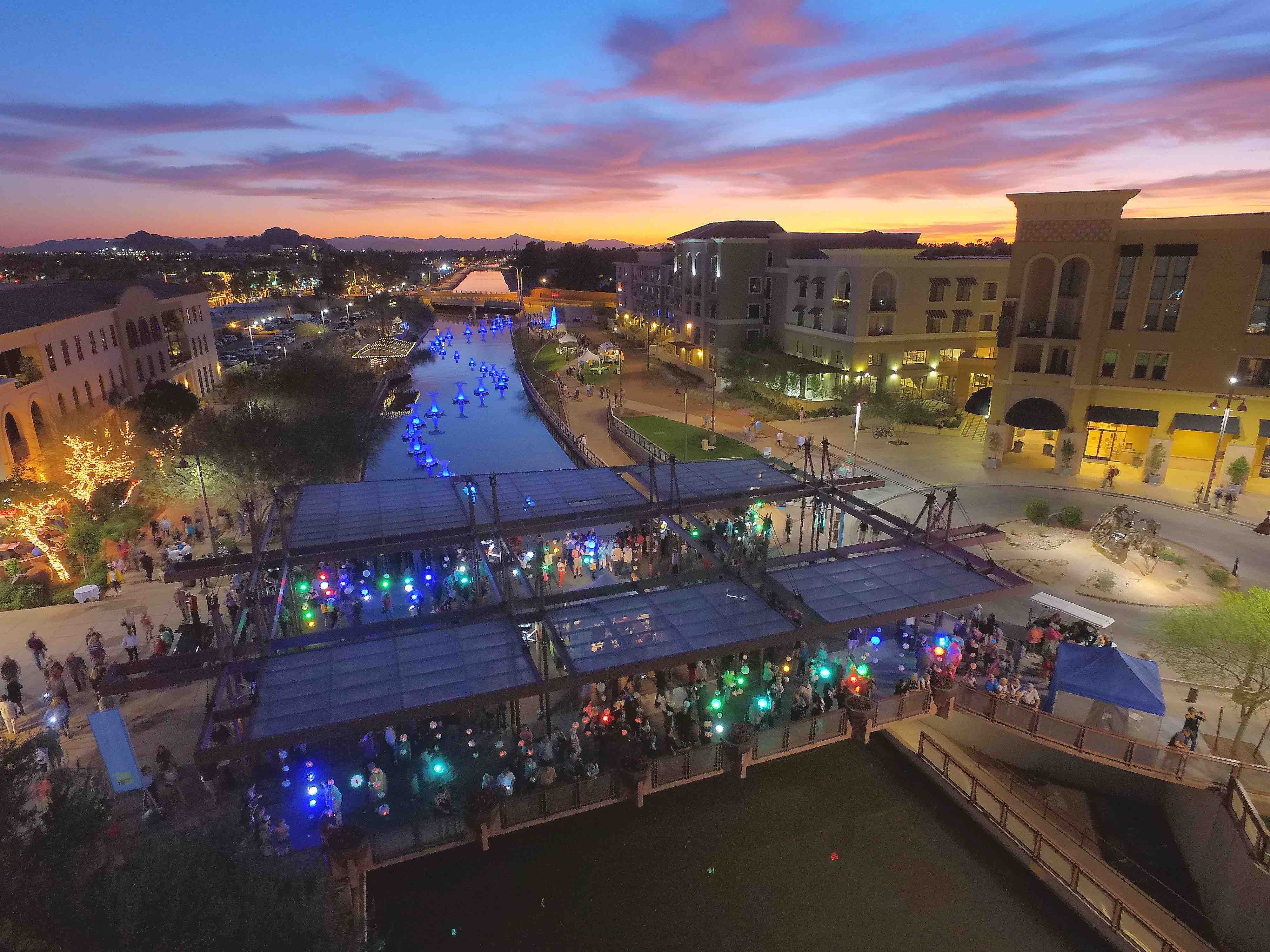Resident Centered Strategic Planning
By NRC on September 7, 2018

- By Angelica Wedell -
Data-based strategic planning in Paducah, KY leads to award winning transformation in resident opinion.
Surveys are widely used by local governments to measure performance and keep in-tune with residents. However, taking the next steps with public opinion data is easier said than done. After conducting a community survey with National Research Center, Inc. (NRC), The City of Paducah, KY put their results to good work and directly infused the survey results into the strategic planning process. Between sequential surveys, the City’s efforts yielded increased resident ratings for almost every facet of livability.
“Paducah leaders also understand the value of developing activities and locations that contribute to each resident’s quality of life,” said Paducah Public Information Officer Pam Spencer, noting that strategic plans were made based on residents’ wishes. “These are core services, too. Providing a variety of parks and activities leads to a healthier community through positive interactions, family time, and physical wellness.”
 Paducah residents reported some of the most improved levels of satisfaction compared with all other jurisdictions that conducted The National Citizen SurveyTM (The NCSTM) in 2016, netting them the 2017 Voice of the People Award (VOP) for Transformation in Recreation and Wellness. The VOP Awards are the only national accolade given in local government based on community opinion. These awards are presented each year by NRC and the International City/County Management Association (ICMA).
Paducah residents reported some of the most improved levels of satisfaction compared with all other jurisdictions that conducted The National Citizen SurveyTM (The NCSTM) in 2016, netting them the 2017 Voice of the People Award (VOP) for Transformation in Recreation and Wellness. The VOP Awards are the only national accolade given in local government based on community opinion. These awards are presented each year by NRC and the International City/County Management Association (ICMA).
Initiating Community Surveys
Paducah is a river city located at the confluence of the Ohio and Tennessee Rivers in far western Kentucky, bordering Illinois. Highway I-24 swoops through the City of 25,000 residents. Besides housing the West Kentucky Community and Technical College and Murray State University’s Paducah Campus, Paducah is home to two hospitals, a bustling shopping scene, numerous art galleries, and cultural venues (including the Luther F. Carson Four Rivers Performing Arts Center and the National Quilt Museum of the United States). Paducah is an employment hub for the region, offering jobs in the healthcare and river industries.
Paducah’s City Manager at the time of the 2013 and 2016 surveys, Jeff Pederson, initiated The National Citizen Survey by NRC in order to use resident opinion to form the basis of a two-year strategic plan. After the survey was complete, Pederson, along with City staff and officials, consulted NRC experts to identify key areas of focus. The two-year strategic plan was launched successfully, and this same survey and planning process was repeated in 2016.
Baseline Data Strategic Planning
In 2013, survey results clearly showed that residents were not enthusiastic about the economic condition of the City. The imminent cut back in jobs resulting from the USEC (once called the U.S. Enrichment Corporation) nuclear plant shutdown did not help matters.
NRC conducted a full day workshop with Paducah’s top staff and City commissioners to identify key survey findings. Notably, the local press attended this meeting, and the journalist on assignment was invited to participate in the discussions. In the community visioning, participants were asked to specify what was unique about Paducah. They were also asked what they wanted for Paducah in the coming years.
In the discussion about the future, leaders identified this vision: a downtown hotel, high-paying quality jobs, economic development, population growth, sustained economy, more businesses, employer infill and more shopping. Small group discussions saw jobs and economic development as top priorities.
The survey results also identified public trust as an issue of concern. So City leaders pinpointed public image, community pride, and local economy as areas for attention. Thus, a set of action plans was born. To bolster reputation and civic pride, the City would develop a marketing and community engagement strategy and increase its focus on neighborhood revitalization.
Economic development was to include multiple improvements. Leaders developed a matrix to identify types of businesses to incent, depending on anticipated return on investment. They also planned to create a more development-ready infrastructure and to educate the public on building inspection policies. This would help encourage the expansion of existing industries that provide jobs to the community.
Upward Trends Across-the-Board
Paducah conducted The NCS once again in 2016, and again held a strategic planning session with City staff and commissioners. Participants focused on the new data as well as the changes in ratings from 2013.
Pederson began by discussing the importance of resident opinions. “If we are absent feedback from the people we serve, then we don’t know how well we are doing. We need the valuable feedback to help in making objective decisions and to focus on areas where we can improve,” he said.
Paducah’s residents positively rated the overall quality of life in the community from 63 percent in 2013 to 68 percent in 2016. While facilitating the strategic planning session, NRC Vice President Michelle Kobayashi compared results between the two surveys. “You have a common trend of being higher. A lot of the things you have been doing have been noticed by the residents, and they are paying off,” she said.
Remarkably, resident ratings showed increases on 80 percent of the survey questions (not all being statistically significant). And the areas of focus from the 2013 strategic plan showed some of the most significant increases in public ratings.


Average ratings of “excellent” and “good” come from a variety of questions related to community engagement and economic development activities on The National Citizen Survey for Paducah, KY.
A Focus on Community Values
Other conversations in the planning session examined what makes a community worth recommending and specific features important to Paducah residents.

City staff point to a number of actions that led to the nearly unanimous increase in resident ratings. The 2013 survey results revealed that Paducah’s citizens value local parks and activities. So the City pushed forward in the following years to complete several recreation and wellness projects including the Paducah Dog Park, Noble Park Pool renovations, Greenway Trail extensions, and riverfront redevelopment. Paducah sought multiple public-private partnerships to develop these special amenities and others.
Although they were pleased with the increased resident ratings, Paducah staff and officials devoted much of the planning session to areas where the community could further improve. The 2016 half-day workshop resulted in four action items where the City would concentrate efforts. Economic development and public trust remained issues for focus. Also, infrastructure (specifically floodwall, 911 government facilities and storm water) and recycling were added to the list.
Another innovative strategy Paducah used was inviting members of the local media to attend the planning workshop. The results of the session received significant coverage on every local outlet, from print and web to broadcast news. While many jurisdictions avoid including the press in strategic planning sessions, Pederson wanted the City’s work and intentions to be shared with residents. This transparency proves how dedicated Paducah leaders are in fostering a strong resident-government partnership. And publicizing plans based on community feedback helps to instill a greater sense of civic trust.
Moving the Community Forward
Since the last strategic planning session based on survey results, the City of Paducah continues to move forward. “Paducah plans to conduct its next Citizen Survey in 2018 and hopes to see further increases in the parks and quality of life facets due to projects that have seen significant progress since the 2016 survey,” Spencer said. Current Paducah City Manager James Arndt supports the 2018 survey and looks forward to using the multi-year trend data for making future plans.
The City of Paducah works with National Research Center, Inc. to conduct The National Citizen Survey (The NCS). Repeating the survey on a regular basis allows city leaders to derive the trend data needed to make the best possible strategic decisions. This benchmarking survey provides a comprehensive and accurate picture of community quality. The NCS uses scientific survey methods to gather resident perspectives about local government services, policies and management, and is conducted in hundreds of communities in nearly every U.S. state.
This article was originally published in the Alliance for Innovation (AFI) Solutions Journal.
Related Articles
Popular posts
Sign-up for Updates
You May Also Like
These Related Stories

How Scottsdale City Council Collaborates with Community Survey Data

Where to Find NRC at the 104th Annual ICMA Conference


